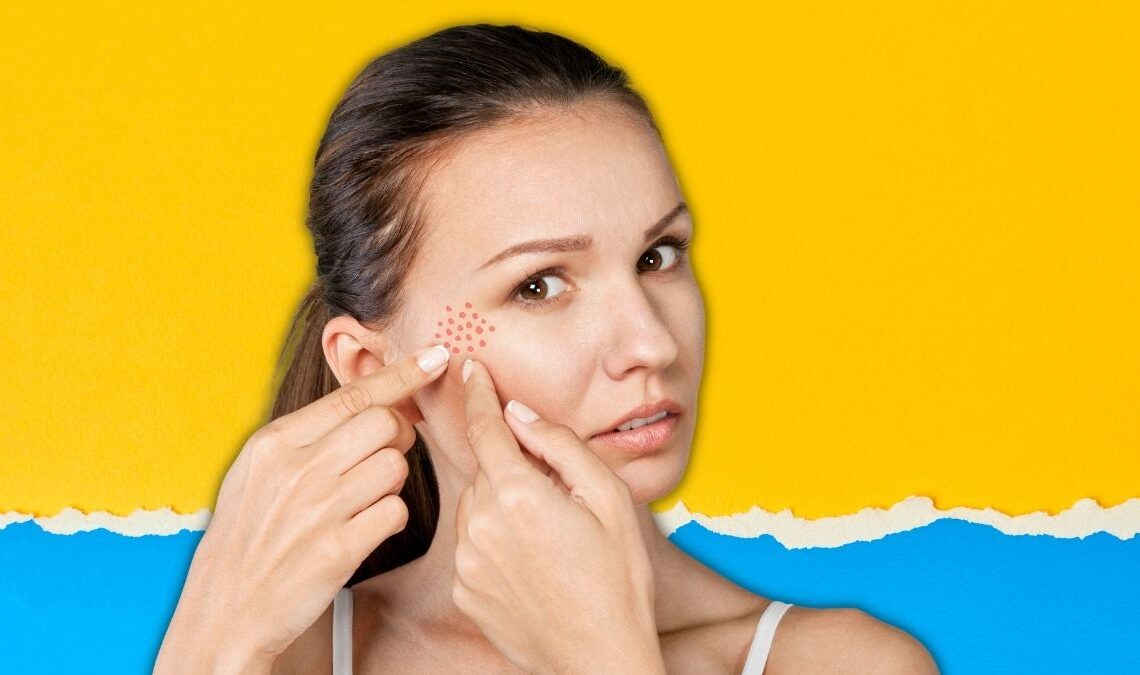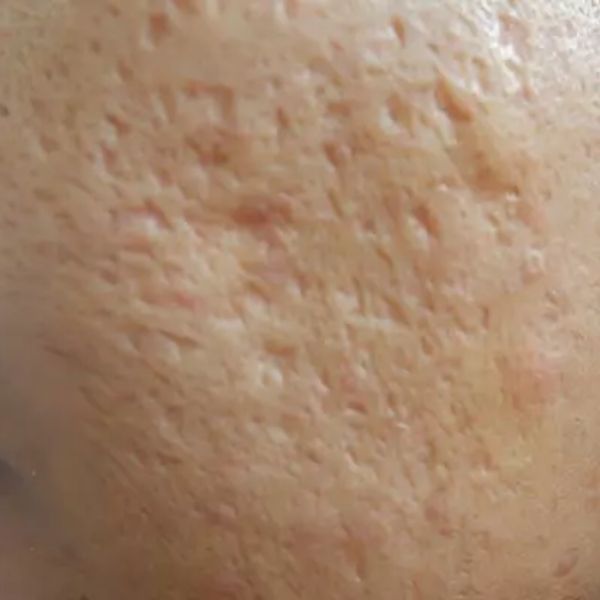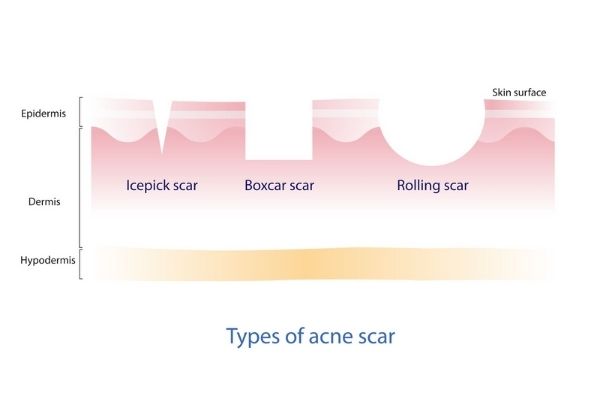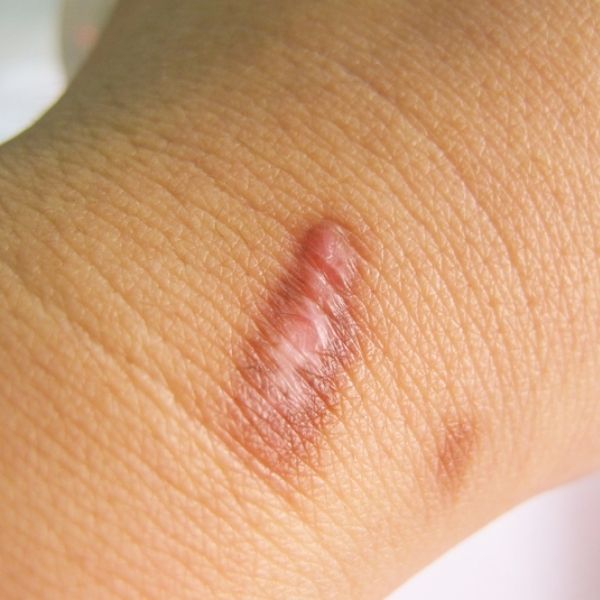Skin-related issues are getting very common day by day. Every one out of two have acne problems on different parts of the body. It can be due to our lousy diet system, environmental issues, or maybe it can result from our hormones issues.
Everyone wants to know about Acne and its treatments, along with preventions. So here this article is. I have mentioned all the related problems about Acne and acne scars.
Acne scars are formed as a result of the inflammation of acne blemishes on different parts of the body. Some of the most common acne scars are on the face, back and chest. Do you know the main reason for the formation of acne scars?
It is the swelling followed by the breakdown of acne pore wall. If acne scare is minor it may heal quickly, but as far as larger scars are concerned, that take time and care.
For your information, the larger and deeper scars result from spilling the matter of blemishes into the surrounding area. This process damages the tissue of that particular area and forms spots called acne scars.
Do you know that studies show people in between 11 to 30 primarily develop acne? More interestingly, only one out of five of them get acne scars.
Some Common Types Of Acne Scars
Acne scars are also of different types. The reason is that during the process of the healing of acne, our body produces collagen. This collagen provides support to the skin.
Now the formation of acne scars depends upon the amount of collagen paid.
Here I Have Mentioned Some Scars That Result From Collagen Formation
1. Atrophic Or Depressed Acne Scars
Atrophic scars are those types of scars that are most commonly formed on the face. When too little collagen is formed during the healing process, atrophic scars appear on the face.
There are three further types of atrophic scars:
- Rolling: The rolling scars are usually formed on the face where the skin is thicker, i.e., the lower cheeks and jaw. These scars are named so due to their broad depressions with rounded edges and an irregular rolling appearance.
- Ice Pick: The ice pick scars are formed on the face where the skin is thinner on the forehead and upper cheeks. They are V-shaped and narrow that deepens into the skin. They are the most difficult ones to heal because of their penetration into the skin.
- Boxcar: The boxcar is also common on the lower jaw and cheeks. Boxcar is u-shaped and wide, having sharp edges. They are either shallow or deep. The former one responds better during the treatment of the skin.
2. Hypertrophic or Raised Scars
As the name shows these types of scares stands a little above to the skin surface. Hypertrophic scars are formed when an excess amount of collagen is produced, causing the skin in that area to overgrow.
Typically these scares are formed on the jawline, back, chest and shoulders. Sometimes these types of scars become very itchy and cause pain.
How To Get Rid Of Acne Scars?
Acne scars are sometimes very frustrating for many people as they somehow affect the physical appearance and remind the pain a person might have gone through during the period of acne.
But the good news for you people is that acne scars are not permanent they can be easily removed by some measures. These measures include some home remedies and medical treatments depending upon the skin type of that particular person or one’s likeness.
Home remedies are somehow the most accessible and cheap way of getting rid of acne and acne scars. It includes the use of some natural and homemade products.
Natural Products:
Some natural products that will help you in removing the acne and acne scars are:
- Honey: Due to its anti-bacterial effect, honey is very helpful in treating infection and healing the wound. Do you know that research has shown that honey helps clear the acne and acne scar and prevent further infection?
- Aloe Vera Gels: It is also a common home remedy used to treat acne and cane scars. Some studies have revealed that a direct application of aloe-vera to the wounds is beneficial in reducing inflammation. For your assistance, aloe-vera gel is readily available in packing at any cosmetic store. Also, you can grow natural aloe vera at your backyard.
- Lemon Juice: Not the scientific shreds of evidence but some anecdotal shreds of evidence have shown the effectiveness of lemon in healing and preventing acne. Lemon juice helps in preventing the discoloration of the skin.
So, the skin remains even in tone. Lemon also helps in removing the dead skin cells. But be careful in using lemon as its acidic nature can harm the skin if used in excess amounts.
- Coconut oil: Being a natural product, it is also conducive to treating acne and acne scars. Please take a few drops of coconut oil and apply them to your skin. Also, massage the skin for about 5 to 10 min. Repeat this twice a week. It prevents the growth of acne on your skin and removes acne scares as well.
- Sunscreen: Most people ignore it, but sunscreen is the most crucial thing to apply to the skin daily. Do you know that sunscreen prevents the skin from all the harmful radiation out there in the atmosphere? Moreover, it also prevents the further darkening of the acne scars due to the direct exposure of the skin to sunlight.
Medical Treatment for Acne Scars
If you do not find home remedies helpful, several medical treatments are also available on the market. But for the medical treatment, you should see a dermatologist.
A dermatologist can recommend you any medical treatment according to your skin type and type of acne scare. Some of them are as under:
- Chemical Peels: The chemical peels include some strong chemicals like acids that provide the foundation for treating acne scars. A chemical peel works by removing the upper layer of the skin to reduce the deeper scars.
There are different types of chemical peels with varying effects on the skin. So you must use them after consulting with your healthcare.
- Laser treatment: Laser works on the same principle as of chemical peel. When the laser is thrown on the skin, it removes the upper and thinner layer of the skin. It is basically a skin resurfacing type of treatment that has a much faster healing action than all other treatments of this type.
But it has a drawback too: it is not effective for the darker skin tone and for the person who’s still getting breakouts.
- Fillers: It is a widely used treatment these days. In this process, fillers are used to fill in the acne scars. The fillers can be made up of either collagen or commercial filler. It helps to plump the skin up and to smooth out the depressed scars.
Some fillers are permanent, but some last only for about 6 to 18 months, and then they need to be redone.
- Micro-needling: In this process, micro-needles are inserted in the scar area of the skin. These micro-needles contain some chemicals that stimulate the skin to produce more collagen. The collagen then assists in smoothing out the skin.
But micro-needling has the drawback that it causes redness, swelling, and pain in some patients. These after-effects are not permanent and fade away with time.
Final words
No doubt that acne scars are, most of the time, frustrating, unwanted, and unpreventable but not untreatable. Most people succeed in getting rid of them using home remedies.
But if you don’t find success in home remedies, then you don’t need to worry. You can consult any dermatologist. A dermatologist can surely help you in treating your stubborn scars.











